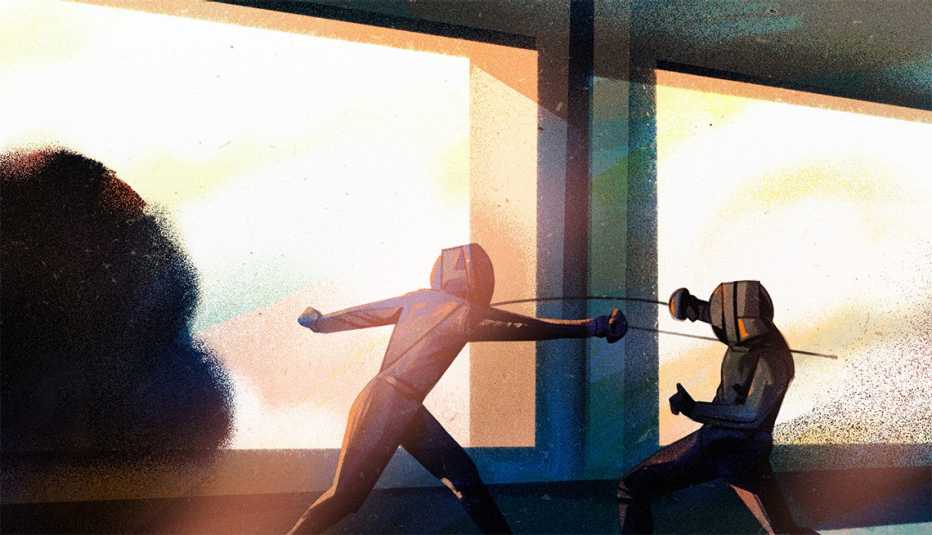Staying Fit


Eleven
Zoe
LAST MAY, a few weeks after the man appeared in the churchyard, she had started going out with Luke, who was, he told her on their first date, three hundred and eighty-three days older than her. They went to the cinema, bicycled to Blenheim Palace and Wychwood Forest, ran the games stall at the school fair, played Scrabble, experimented with his parents’ collection of gin. She liked that he knew things—how fruit flies pass on genetic traits, that an underground fungus is the world’s largest living organism—but he was oddly stupid about people. When she asked if he thought his parents still had sex, his mouth gaped as if she’d asked whether they flew around the chimney.
Anthony, also a year older, was at first an improvement. He could tell a joke so that people laughed, and he had a scooter. She liked the wind in her face, the way the familiar houses and hedges flashed by. He told her he’d slept with a girl he met on holiday in the Dordogne.
“What was it like?” she had asked.
“Let me show you.” He slid his hand under her thigh.
“I don’t want you to show me.” She pretended her leg belonged to someone else. “I want you to tell me.”


AARP Membership— $12 for your first year when you sign up for Automatic Renewal
Get instant access to members-only products and hundreds of discounts, a free second membership, and a subscription to AARP the Magazine.
He clicked his teeth. “Awkward. Embarrassing. The opposite of boring. Way too fast. I don’t think she liked it. I felt badly about that. The second time was better.”
At least he didn’t pretend it was utterly wonderful. “Where were you?”
“In a boat shed, behind a boat. Zoe, this is weird. I don’t ask you about Luke.”
“You can if you want. I’ll tell you everything he told me about fruit flies.”
He had fended off her questions, and she had fended off his hands. They had been seeing each other for nearly two months when a group of them went to the cinema. She and Ant sat in one row; Moira and some friends sat in the row in front. Even while Ant held her hand, she noticed how his eyes followed Moira. The next day, as she climbed onto his scooter after school, the words hopped out of her mouth: “Why do you always look at Moira?”
“I don’t,” he said. “You’re just jealous.”
Both the idea, and his smug satisfaction, were enraging. I don’t want to see you again, she thought. What a nice sentence. If she hadn’t needed a lift home, she would have jumped off the scooter and said it right then. As soon as they stopped outside her house, she did exactly that.
“Brhh.” He clapped his hands. Inside his helmet, he hadn’t heard.
“I don’t want to see you again,” she repeated. Ant stopped clapping his hands. “Why not? We have a good time. Is there someone else you like?”
“No. But I don’t like you enough.”
He sat back on his seat. Beneath his helmet, his eyes hardened in a way that made clear his anger. “You’re such a liar, Zoe. You pretend to know what you want, but you don’t have a clue. You’re just scared to sleep with me.”
“I may not have a clue about most things, but I’m absolutely sure that the last thing I want to do is sleep with you.” She removed her helmet and held it out to him, an empty shell.


































































More From AARP
Free Books Online for Your Reading Pleasure
Gripping mysteries and other novels by popular authors available in their entirety for AARP members